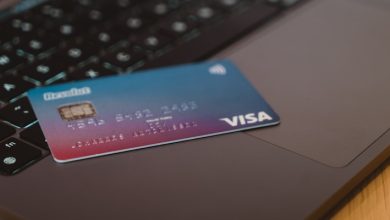Understanding the Legal Implications of Wallet Security

- The Importance of Protecting Your Digital Wallet
- Common Threats to Wallet Security
- Legal Ramifications of Wallet Hacks
- Regulatory Frameworks for Wallet Security
- Best Practices for Securely Managing Your Wallet
- Case Studies: Legal Consequences of Negligent Wallet Security
The Importance of Protecting Your Digital Wallet
It is crucial to understand the importance of protecting your digital wallet to prevent unauthorized access and potential theft of your assets. Your digital wallet contains valuable information such as private keys and passwords that are essential for accessing and managing your cryptocurrencies.
By implementing robust security measures, you can safeguard your digital wallet from cyber threats and fraudulent activities. It is recommended to use strong passwords, enable two-factor authentication, and keep your software up to date to minimize the risk of security breaches.
Moreover, being vigilant and cautious while transacting online can help prevent phishing attacks and malware infections that may compromise the security of your digital wallet. Avoid clicking on suspicious links or providing sensitive information to unverified sources to maintain the integrity of your assets.
Remember that the security of your digital wallet is ultimately your responsibility. By taking proactive steps to enhance its security, you can protect your cryptocurrencies and ensure a safe and secure online experience.
Common Threats to Wallet Security
One of the most common threats to wallet security is the use of weak passwords. When individuals use passwords that are easy to guess or re-use the same password across multiple accounts, they are putting their wallets at risk of being compromised. It is important to use strong, unique passwords for each wallet to prevent unauthorized access.
Another threat to wallet security is phishing attacks. Phishing is a type of cyber attack where scammers try to trick individuals into providing their sensitive information, such as wallet credentials, through fraudulent emails or websites. It is crucial to be cautious of any unsolicited messages or links that request personal information to avoid falling victim to phishing scams.
Malware is also a significant threat to wallet security. Malicious software can infect devices and steal wallet information without the user’s knowledge. It is essential to keep devices up to date with the latest security patches and use reputable antivirus software to protect against malware attacks.
Lastly, physical theft or loss of a wallet can pose a threat to security. If a physical wallet is stolen or misplaced, the sensitive information stored inside could be accessed by unauthorized individuals. It is advisable to keep wallets in a secure location and consider using encryption or biometric authentication to add an extra layer of protection.
Legal Ramifications of Wallet Hacks
When a wallet is hacked, it can have serious legal consequences for the owner. The unauthorized access to personal financial information stored in a wallet can lead to theft, fraud, and other criminal activities. In many cases, victims of wallet hacks may be able to take legal action against the perpetrators to recover their losses.
One of the main legal ramifications of wallet hacks is the potential for identity theft. Hackers who gain access to a wallet can use the information stored within it to steal the victim’s identity, open new accounts in their name, and make unauthorized purchases. This can have a devastating impact on the victim’s credit score and financial stability.
Another legal implication of wallet hacks is the violation of privacy laws. When a wallet is hacked, sensitive personal information such as bank account numbers, credit card details, and social security numbers may be exposed. This can lead to a breach of privacy laws and regulations, which could result in legal action being taken against the hacker.
In addition to identity theft and privacy violations, victims of wallet hacks may also be at risk of financial fraud. Hackers can use the stolen information to make fraudulent purchases or withdrawals, leaving the victim liable for the charges. In some cases, victims may have to prove that they did not authorize the transactions in order to recover their losses.
Overall, it is essential for wallet owners to take steps to protect their personal and financial information from hackers. By using strong passwords, enabling two-factor authentication, and keeping their wallets up to date with the latest security patches, they can reduce the risk of falling victim to a hack and facing the legal consequences that come with it.
Regulatory Frameworks for Wallet Security
The regulatory frameworks surrounding wallet security play a crucial role in ensuring the protection of digital assets. These frameworks establish guidelines and standards that wallet providers must adhere to in order to safeguard users’ funds effectively. By implementing robust security measures, such as encryption protocols and multi-factor authentication, wallet providers can mitigate the risk of unauthorized access and potential theft.
In addition to technical security measures, regulatory frameworks also address legal aspects related to wallet security. For example, some jurisdictions require wallet providers to obtain licenses or registrations to operate legally. These regulatory requirements help ensure that wallet providers are held accountable for protecting users’ funds and complying with relevant laws and regulations.
Furthermore, regulatory frameworks often outline procedures for handling security incidents, such as data breaches or unauthorized transactions. Wallet providers are typically required to report such incidents to regulatory authorities and affected users promptly. By establishing clear guidelines for incident response, regulatory frameworks help minimize the impact of security breaches and enhance transparency in the handling of security incidents.
Overall, regulatory frameworks for wallet security are essential for creating a secure and trustworthy environment for users to store and transact digital assets. By promoting compliance with security standards and legal requirements, these frameworks help build confidence in the use of digital wallets and contribute to the long-term viability of the cryptocurrency ecosystem.
Best Practices for Securely Managing Your Wallet
When it comes to securely managing your wallet, there are several best practices that you should keep in mind. By following these guidelines, you can help ensure that your funds are safe and protected from potential threats.
- Use a hardware wallet: One of the most secure ways to store your cryptocurrencies is by using a hardware wallet. These devices store your private keys offline, making them much less vulnerable to hacking attempts.
- Enable two-factor authentication: Adding an extra layer of security to your wallet by enabling two-factor authentication can help prevent unauthorized access to your funds.
- Keep your software up to date: Regularly updating your wallet software can help patch any known security vulnerabilities and protect your funds from potential attacks.
- Use strong passwords: When creating a password for your wallet, make sure to use a combination of letters, numbers, and special characters to make it harder for hackers to guess.
- Avoid public Wi-Fi: When accessing your wallet from a mobile device, avoid using public Wi-Fi networks, as they can be insecure and prone to eavesdropping.
- Backup your wallet: In case your device is lost or damaged, it’s important to have a backup of your wallet stored in a safe place. This will allow you to recover your funds in case of an emergency.
By following these best practices for securely managing your wallet, you can help reduce the risk of losing your funds to malicious actors. Remember to always stay vigilant and take the necessary precautions to keep your cryptocurrencies safe and secure.
Case Studies: Legal Consequences of Negligent Wallet Security
There have been several cases where individuals have faced legal consequences due to negligent wallet security practices. These cases serve as important reminders of the potential risks involved in not properly safeguarding one’s wallet and personal information.
One such case involved a man who lost his wallet containing sensitive financial information. As a result, unauthorized transactions were made using his credit cards, leading to significant financial losses. The man was held liable for these transactions due to his failure to take reasonable precautions to protect his wallet.
In another case, a woman’s wallet was stolen while she was out shopping. The thief used her identification documents to commit identity theft, causing extensive damage to her credit history. The woman had to spend a considerable amount of time and resources to resolve the issue and restore her financial reputation.
These cases highlight the importance of implementing proper wallet security measures to prevent potential legal and financial repercussions. By taking simple steps such as keeping wallets secure, avoiding carrying unnecessary personal information, and being vigilant in public places, individuals can significantly reduce the risk of falling victim to wallet-related crimes.



